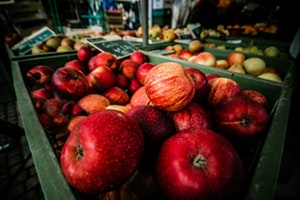Does an apple a day really keep the doctor away?
13 July 2018

The eponymous saying ‘an apple a day keeps the doctor away’ popularised in the 19th century is being tested by nutritional scientists at the University of Reading, and they are looking for volunteers to help.
Foods such as apples, oats and a friendly bacteria (probiotics) help grow beneficial bacteria which improve health by changing the makeup of bile in the gut.
The team from the Hugh Sinclair Unit of Human Nutrition will be looking at how acids in the digestive system help break down fatty foods, and whether changes in these bile acids are related to markers of health, such as blood cholesterol and the body’s ability to handle sugar.
Find out more information about the study, and how you can sign up as a volunteer, at:
https://www.facebook.com/cabalastudy/
Professor Julie Lovegrove Director of the Hugh Sinclair Unit of Human Nutrition at the University of Reading said:
“This is an exciting study to help us understand one way in which the old saying that an apple a day keeps the doctor away might be true.
"We have shown previously that apples, rich in fibre and a natural compound called polyphenols, lowers blood cholesterol levels, and so we are looking for volunteers to help us to understand how apples and other gut-friendly foods lowers this and other important risk factors for heart disease.”
“Heart health is costing the NHS around £9bn a year, and we know that diet has a key role in reducing the risks. At present, very little is known about how gut friendly foods modify the makeup of the gut microbes and how these change bile acids and blood cholesterol levels.”
People interested in participating in the study can find our more information on Facebook, or can contact the team at cabala-study@reading.ac.uk
